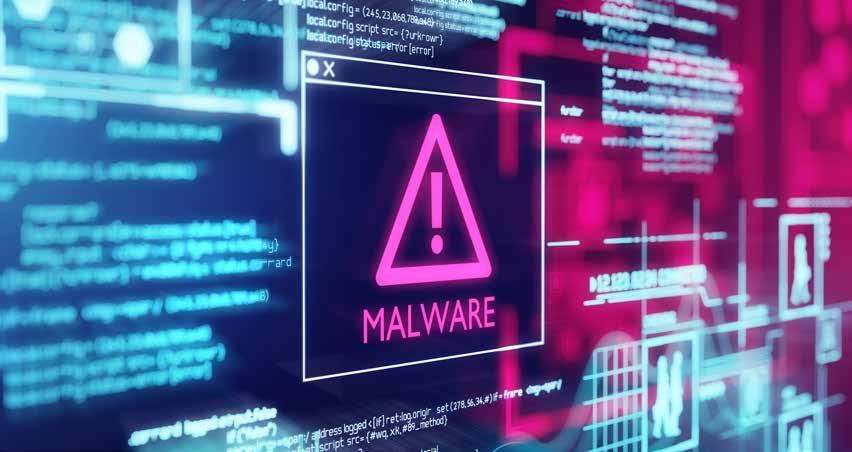
2 minute read
Ask A Professional
What Do Malware, Viruses, and Trojans Do To A Computer?
We have all heard a story where Jane gets an email from a friend asking her to take a survey or open an attached document. Jane excitedly opens the email, clicks the link, and downloads something to her computer. The next thing she knows, hackers have taken over her computer and refuse to allow any access unless a ransom is paid. You might think, “That can’t happen to me!” But trust us, we’ve heard that before. Viruses, trojans, and malware are now very common for users and can create havoc on the computer system. So, what does it all mean?
Advertisement
Malware means malicious software. Simply put, it is a term to describe all viruses, worms, spyware, trojans, and anything specifically designed to cause harm to your computer or steal your personal information.
Much like in real life, a virus is a program that copies itself and infects a computer, spreading from one file to another, and then from one computer to another when the files are copied or shared. Many viruses are designed to make your computer completely inoperable. Some, however, simply delete or corrupt files while others just want you to call a fake Microsoft number so they can gain access to your computer.
The suspicious email attachment or shady internet download can be what opens the door for a trojan horse. Trojan horses are applications that appear to be safe, but secretly have malicious code attached. In many cases, trojans will create a backdoor that allows your computer to be remotely controlled. When your computer is infected with a trojan, it can be used for many harmful purposes, such as sending out large amounts of spam. The major difference between a virus and a trojan is that trojans don’t replicate themselves, they must be installed by an unsuspecting user. Chad Aukes
OWNER, TECH UNLIMITED, NEW ULM
The severity of the hack depends on the type of intrusion. The scam may be as harmless as a pop-up saying to call “Microsoft” at a 1-800 number (which is fake). The scam may also be as serious as a ransomware attack that has encrypted all of your files and the only way to get the decryption key is to pay them with bitcoin.
The best line of defense against attacks is to educate yourself on the different attack methods, and have an antivirus and anti-malware protection. It is important to keep in mind, that no protection is 100% guaranteed to keep your computer safe. For your security, you should always have a backup of your computer, difficult passwords, and routine tuneups. If something on your computer appears suspicious or is acting unusual, give Tech Unlimited a call and we will help you determine if it is safe to proceed.
Tech Unlimited services all brands of desktop and laptop computers, as well as tablets, screens, phones and other electronic devices. Tech Unlimited’s customers include both residential and business clients.





